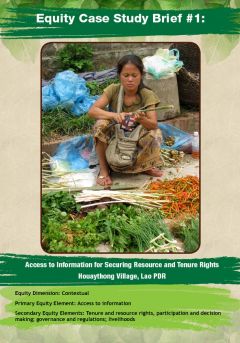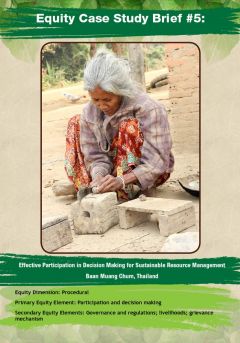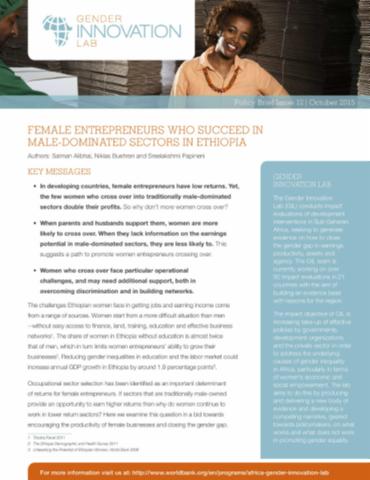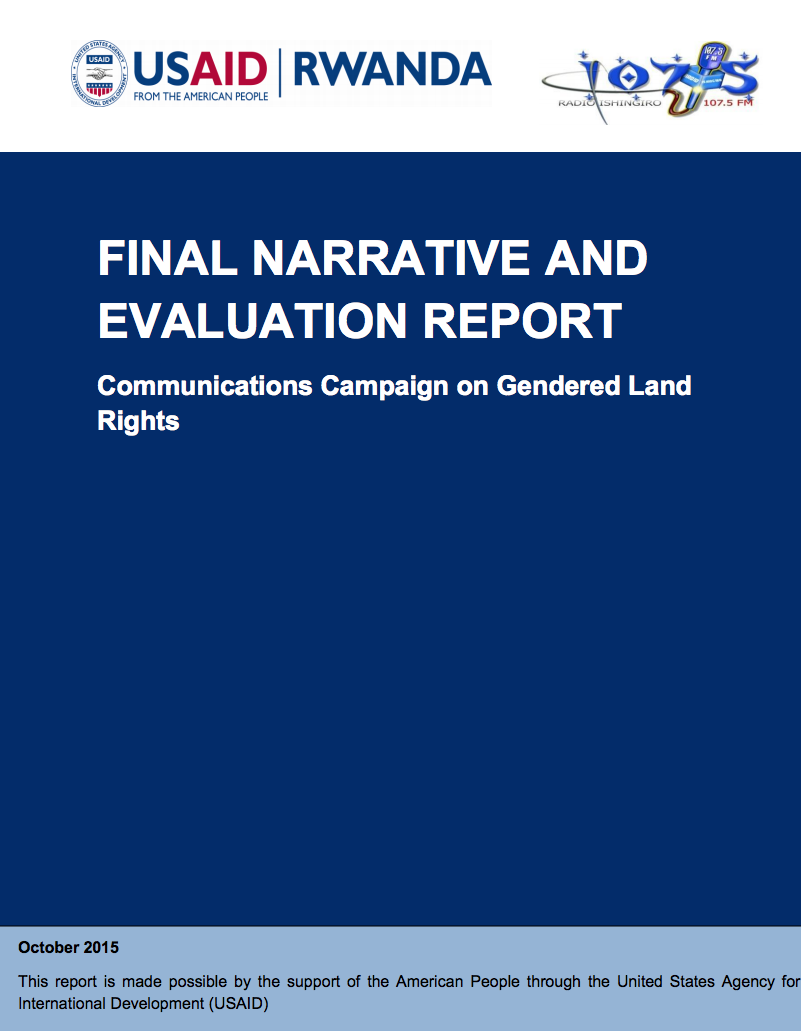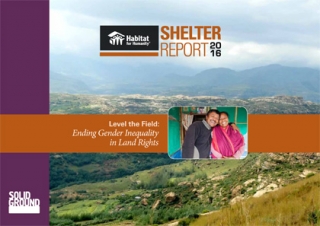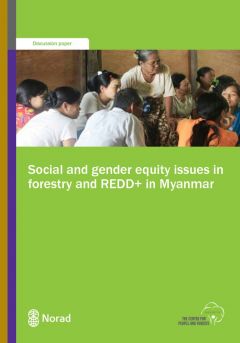Equity Case Study Brief #5: Effective Participation in Decision Making for Sustainable Resource Management - Baan Muang Chum, Thailand
In this case, equity issues were brought about by the absence of participation mechanism in forest management as the communal rights system in practice was not sufficient to control resource utilization within the community.
Female Entrepreneurs Who Succeed in Male-Dominated Sectors in Ethiopia
In developing countries, female entrepreneurs have low returns. Yet, the few women who cross over into traditionally male-dominated sectors double their profits. So why don't more women cross over? When parents and husbands support them, women are more likely to cross over. When they lack information on the earnings potential in male-dominated sectors, they are less likely to.
One Woman, One Hectare of Land CGE Report; Rural Development & Land Reform Budget Review & Recommendations Report
The Commission for Gender Equality presented on its proposed campaign called One Woman, One Hectare of Land’. The campaign aims to mainstream gender equality, for it was proposed that the State should allocate one hectare of land, for the growing of food, to the poorest rural female-run households. It was believed that this would help alleviate poverty and empower rural women.
Final Narrative and Evaluation Report on Gender and Land Rights
Between October 2014 and October 2015, Radio Ishingiro with the support of USAID
Land Project implemented a Communications Campaign focused on influencing the
attitudes and mindsets of men and boys about gender-equal land rights to overcome
traditional norms and beliefs that hinder women from exercising their rights to land. In
Shelter Report 2016
Land tenure is one of the great challenges Habitat for Humanity faces in helping families access decent housing. Countless families around the world lack rights to the land on which they live. Just imagine the stress of knowing that any day you might be forced to move because someone else claims ownership of the place you call home.
Social and Gender Equity Issues in Forestry and REDD+ in Myanmar
RECOFTC and partners recently conducted a national-level expert panel discussion in Myanmar on gender mainstreaming in national forestry and REDD+ initiatives.
Posters for grassroots communities in Lao PDR on gender and climate change
RECOFTC’s Grassroots Capacity Building for REDD+ project in Lao PDR is launching five new posters on gender mainstreaming in climate change (CC) and sustainable forest management (SFM). The posters are produced in Lao language and serve as a tool for local facilitators in their activities to raise awareness and generate discussions among local communities on these issues.
Manejo forestal comunitario, gobernanza y género en Hidalgo, México
Las mujeres son importantes usuarias de recursos forestales. Sin embargo, su participación en la gobernanza forestal es limitada, y las razones de esta situación han sido poco estudiadas en México.
Reconsidering approaches to women’s land rights in sub-Saharan Africa
Emphasises the need for donors, NGOs and governments to take a more comprehensive approach to women’s land rights that addresses underlying gender dynamics to bring about transformative gender change rather than token gains for women.
The Impact of Gendered Legal Rights to Land on the Prevalence and Nature of Intra- and Inter-Household Disputes
Comprises background and research objectives, literature review, research methodology, research findings, conclusions and recommendations. Believes that local authorities should be sensitized to the urgent need to bring sustainable and just resolution to intra-household disputes as there is a tendency for these to result in violence against women disputants.
Measuring Land Rights for a Sustainable Future
Examines recent progress on developing indicators to measure land rights as part of the new Sustainable Development Goals (SDGs) in 2016. Argues that the current proposed indicators are too narrow and that a more appropriate indicator, which has achieved a high level of consensus, should be adopted by the UN.

